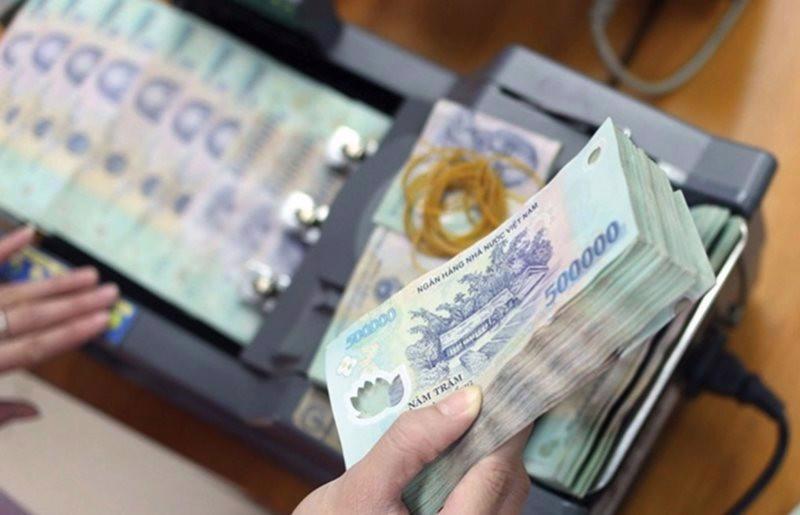Pressure on monetary policy to be alleviated
International organizations have emphasized that caution is needed regarding monetary policy in Vietnam given the ongoing conditions.

The State Bank of Vietnam (SBV) has implemented a flexible monetary policy since last year to provide low-cost funding and support economic growth. In addition to proactively cutting interest rates multiple times since mid-March 2023, the central bank has also extended a regulation on debt restructuring and maintaining debt classification for borrowers facing difficulties, to December 31, 2024.
Early this month the SBV introduced a draft circular extending the debt restructuring period for borrowers impacted by the recent Typhoon Yagi to December 31, 2025. As part of this support measure, banks are permitted to restructure loans for affected borrowers while maintaining their debt classification.
International organizations such as the Asian Development Bank (ADB), the World Bank (WB), and the International Monetary Fund (IMF) have commended Vietnamese authorities for effectively managing inflation risks and stabilizing the VND. However, they also emphasized that monetary policy must remain cautious in light of complex conditions and shrinking policy space.
Risks from negative real interest rates
At the end of September, the US Federal Reserve (Fed) cut its interest rates by 0.5 percentage points, following more than four years of high rates to combat inflation. This fueled expectations that the SBV may further relax its monetary policy to stimulate domestic investment and consumption in support of economic growth.
However, Mr. Nguyen Ba Hung, the ADB’s Principal Country Economist at the Vietnam Resident Mission, pointed out that the central bank’s current policy rate is at 4.5 per cent, while inflation is at 4 per cent, leaving a real interest rate of a low 0.5 per cent. Further rate cuts could therefore result in negative real interest rates, potentially leading to unfavorable macro-economic effects.
Associate Professor Pham The Anh from the National Economics University agreed, noting that the SBV’s current interest rate is appropriate, even if the Fed moves to cut its rates further. “Lower US interest rates help stabilize the VND/USD exchange rate, retaining foreign investment,” he said. “Lowering interest rates in Vietnam further could destabilize financial and monetary markets.”
Experts highlight the importance of focusing on the transmission of interest rates between the interbank market and commercial lending, as well as the quality of credit growth. “Vietnam’s monetary policy has been loosened since 2023, and further easing would be challenging,” Mr. Hung explained. “If the SBV lowered its policy rate from 4.5 per cent to 4 per cent, the market reaction would be minimal, with only a slight impact on commercial banks’ capital costs. The current issue is not high interest rates but weak credit demand due to economic difficulties.” He also warned of rising bad debt risks, as the economic downturn limits the potential for further monetary easing.
According to financial reports from listed banks, as of the end of the second quarter of 2024, the banking sector’s non-performing loan (NPL) ratio stood at 4.56 per cent, an 8.6 per cent increase since the beginning of the year. However, excluding five banks under special control, the on-balance-sheet NPL ratio remained below 3 per cent.
Moreover, uncollected interest income poses additional bad debt risks, as profits are recorded even when no actual cash has been received. As of the second quarter of 2024, several wholesale banks reported significant increases in accrued interest and fees compared to the end of 2023.
A better balance
Mr. Hung emphasized the critical importance of banking system stability, given that banks are unique institutions that deal with money. Addressing the impact of natural disasters and pandemics on the sector, he noted that banks also face direct losses when assets used as collateral are damaged, or when customers affected by such events struggle to repay loans.
“Reflecting on how banks can support struggling businesses, I believe that within the framework of provisions, banks can extend, reduce, or forgive debts as appropriate,” he said. “For instance, if a bank lends ten units and has provisions set at two units, it can implement support measures without exceeding those provisions.”
Mr. Shantanu Chakraborty, Country Director for Vietnam at the ADB, acknowledged the country’s efforts in sustaining growth but pointed out that there remain significant instabilities that need to be addressed. On the domestic front, the real economy continues to show weaknesses in its fundamental structural foundations. Weak domestic demand necessitates more robust fiscal stimulus measures. Externally, the slow recovery of the global economy may continue to restrict demand, negatively affecting exports, production, and employment. Vietnam’s exports face increasing competition due to shifts in global value chains for products like garments, textiles, and electronics, along with risks from escalating geopolitical tensions and a rise in protectionism.
To sustain growth momentum in 2024 and 2025 and ensure macro-economic stability, Mr. Chakraborty suggested that Vietnam better balance its monetary and fiscal policies while also pursuing comprehensive public administration reform. “Weaker-than-anticipated external demand requires continued policy measures to stimulate business activities and boost domestic demand,” he went on. “Though the SBV continues to implement supportive monetary policies, its capacity to do so has become significantly limited. Therefore, it is essential to enhance fiscal support measures, expedite public investment disbursement, and further reform State management to alleviate the burden on monetary policy in driving the economy.”
IMF consultation
In a report concluding the IMF’s Article IV consultation with Vietnam, released on October 2, 2024, the IMF Executive Board emphasized that Vietnam must exercise caution in managing its monetary policy amid a complex environment with limited policy space.
It underscored the importance of bolstering the resilience of the financial system by strengthening capital buffers, gradually phasing out regulations on debt restructuring while maintaining loan classifications, and addressing the rise in bad debts. Experts note that while commercial banks in Vietnam report substantial profits, their asset sizes are relatively small, the quality of those assets remains unstable, and their capital adequacy ratios (CARs) are lower than those in other ASEAN countries.
The IMF recognizes that authorities have acted promptly to limit risks in the real estate and corporate bond markets. However, it cautions that the ongoing weaknesses in these sectors may exert a more significant influence than expected on banks’ ability to expand credit, potentially hindering economic growth and jeopardizing the stability of the financial system.
It advises Vietnamese authorities to take decisive action to address these risks, which include reinforcing the legal framework surrounding insolvency, improving institutional frameworks, and enhancing transparency in the corporate bond market.
Given the current situation, international organizations such as the IMF, the WB, and the ADB collectively recommend that Vietnam intensify efforts to expedite the disbursement of public investment funds. This approach will directly support sectors like construction and manufacturing, creating additional job opportunities. Increased government spending will stimulate domestic demand, and when businesses recognize vibrant production and commercial opportunities, their need for additional capital will grow, thereby encouraging credit expansion.



















